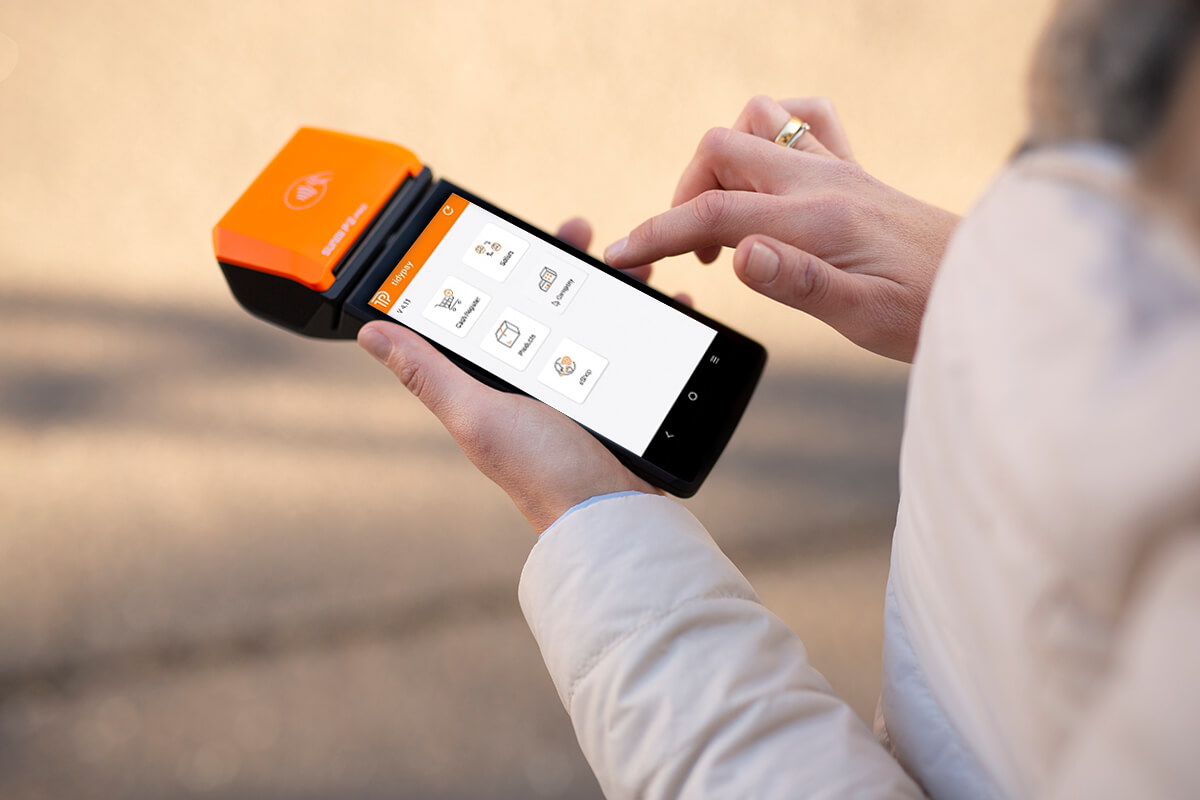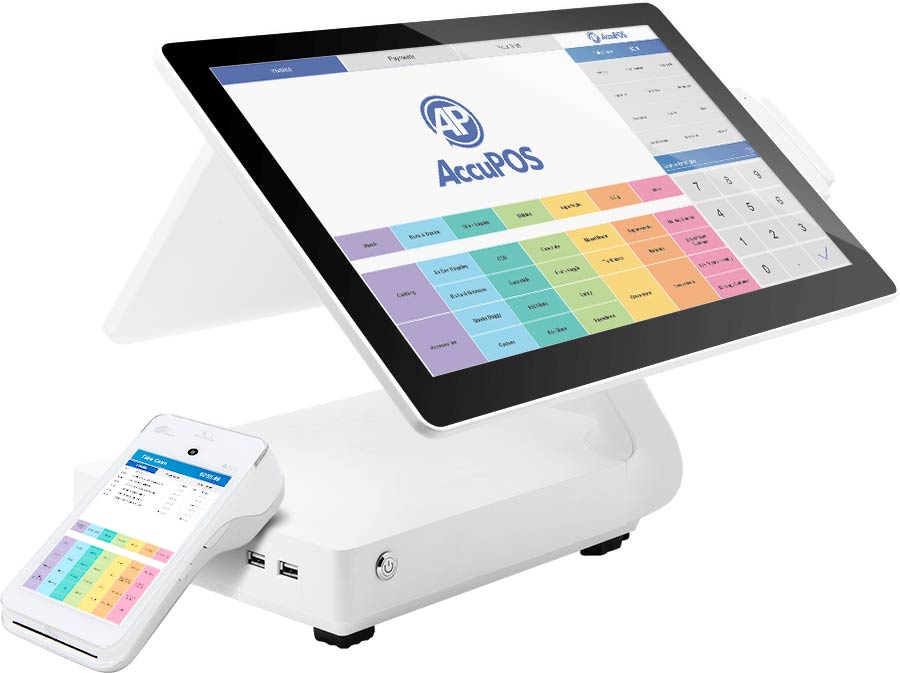Point Of Sale - Questions

POS Software: Retail Point-Of-Sale Solutions Streamline Deals
Our Pos Systems Statements

Hardware Parts of a Point of Sale System What makes a POS system tick? It's not simply software; the hardware plays a starring role. Think about it as the body to the software's brain. Without the best hardware, even the most sophisticated POS software application is just a quite face. Important POS Hardware So, what are the must-haves? Let's break it down. The main processing system, often a computer system or tablet, is the more info heart of the operation. The screen or touchscreen show permits staff to connect with the system. A barcode scanner speeds up the checkout process. Remember the days of manually getting in each code? The dependable receipt printer offers consumers with a record of their purchase. A cash drawer keeps your cash safe and organized. A card reader allows consumers to pay with credit or debit cards. Diving Deeper: Beyond the Fundamentals But wait, there's more! Depending on your business, you may require specialized hardware. A dining establishment might incorporate cooking area printers to relay orders, while a retail shop might use label printers for item tagging. Ever wonder how your local bakeshop immediately prints those delicious-looking labels? Selecting the Right Hardware: A Balancing Act Selecting the ideal hardware isn't just about buying the most expensive devices. It's about discovering the sweet spot in between functionality, sturdiness, and budget. A small company simply starting out may choose a more fundamental setup, while a high-volume seller will require robust, high-performance devices. Is it much better to purchase new or utilized? Consider your choices thoroughly. A new system uses the most recent innovation and service warranty protection, however a refurbished system can conserve you money. The Future of POS Hardware What does the future hold? Anticipate to see even more combination with mobile gadgets, biometric scanners for worker authentication, and advanced analytics dashboards showed on larger, clearer screens. Envision a world where stock is immediately updated in real-time as items are scanned-- a world where you can track your very popular item from anywhere in the world. The possibilities are endless, and the hardware is constantly evolving to fulfill the demands these days's services. Are you all set to upgrade your point of sale system?
Software Features and Capabilities: The Heart of Your POS System
Ever watch an experienced barista slide through a hectic early morning rush? Their trick isn't just caffeine; it's a smooth dance with their POS system. The software is the conductor of your organization symphony, orchestrating whatever from sales to inventory. What notes should you be listening for? What abilities truly matter in today's market?
Inventory Management: Beyond Counting Beans
Forget spreadsheets that haunt your dreams. Modern POS systems offer real-time inventory tracking, signaling you when your stock of artisanal coffee beans dips precariously low. Think of it as a digital guardian angel, preventing those uncomfortable "Sorry, we're out!" moments to clients. What if you could likewise predict need based upon historic information? Lots of systems now provide forecasting tools, a powerful weapon versus overstocking and lost sales. This assists avoid the dilemma of lacking popular items or collecting excess stock of slow-moving items, both of which can constrain money circulation and space.
Sales Reporting and Analytics: Decoding the Data
Sales information is the new gold, and your POS system is the miner. Forget feeling in one's bones how much you offered today. Dive deep into the information to discover trends, identify your best-selling products, and understand customer behavior. Which menu item sets completely with the day-to-day special? Which promo resonated most with your clientele? These insights are not simply intriguing; they're actionable intelligence. Without reputable sales reporting, navigating the intricacies of company decision-making ends up being like cruising without a compass, increasing the possibility of errors and missed chances.
Customer Relationship Management (CRM): Building Bridges, Not Walls
Remembering a regular customer's name and favorite order is lovely, however scaling that personal touch is challenging. POS systems with CRM abilities enable you to track customer purchase history, choices, and even birthdays. Imagine automatically providing a discount on their birthday-- a little gesture that cultivates loyalty and encourages repeat service. However there is the potential snag of bad information quality, which can result in unreliable customer profiles and ineffective marketing efforts.
Payment Processing: Enhancing the Transaction
The checkout experience can make or break a sale. Smooth combination with various payment approaches-- credit cards, mobile wallets, even copyright-- is non-negotiable. Can your system manage split payments? Does it offer secure tokenization to secure consumer information? A cumbersome payment procedure resembles hitting a sour note in your service symphony, possibly interfering with the entire performance. Making sure compatibility with evolving payment technologies and adherence to security requirements are vital for keeping client trust and functional performance.
Staff Member Management: Keeping the Team in Sync
From clocking in and out to managing approvals and tracking performance, employee management features streamline operations and improve responsibility. Is scheduling a problem? Many POS systems offer integrated scheduling tools, enhancing staffing levels based upon forecasted demand. A common barrier that is often neglected is the difficulty of integrating employee management functionalities with payroll systems, which can cause mistakes and inadequacies in wage calculations.
Advanced Characteristics: Leveling Up Your Operations
- Table Management: Suitable for dining establishments, this feature allows you to envision your dining room, track table status, and manage appointments.
- Commitment Programs: Reward your best clients and motivate repeat service with incorporated commitment programs.
- Online Purchasing Combination: Flawlessly incorporate your POS system with online buying platforms to expand your reach.
Picking the right POS system is about more than simply performance; it's about discovering a partner that can grow with your organization. Consider your current requirements, prepare for future development, and don't be afraid to ask the hard concerns. The right software can transform your service from a chaotic cacophony into an unified masterpiece.
Industry-Specific POS System Applications
Believe of the regional pastry shop, bustling with morning customers craving fresh croissants. A generic POS system might deal with deals, however can it handle intricate recipes, track component inventory, or immediately adjust production schedules based upon sales data? Most likely not. That is where the beauty of industry-specific POS systems shines.
Dining establishments and Hospitality
For bustling restaurants, speed and precision are critical. The number of times have you seen servers managing orders, adjustments, and splitting expenses, all while trying to offer exceptional service? A restaurant POS system simplifies these processes, enabling table management, kitchen order tickets, and even online purchasing combination. These systems frequently consist of functions like ingredient-level stock tracking, essential for handling food costs and reducing waste. Ever wonder why your preferred dish is in some cases unavailable? It may originate from an absence of correct inventory management.
- Table Management
- Kitchen Order Tickets
- Online Ordering Combination
- Ingredient-Level Stock Tracking
Retail Solutions
Retail, with its diverse stock and customer interactions, demands a various set of tools. Envision a boutique clothes store struggling to keep track of sizes, colors, and seasonal collections using a fundamental checkout system. An industry-specific retail POS system uses features like barcode scanning, client loyalty programs, and detailed sales reporting. These systems can even incorporate with e-commerce platforms, supplying a smooth omnichannel experience for clients. Did you know some retail POS systems can forecast future sales trends based upon historic information? Now that is powerful!
The Dangers of a Mismatch
Choosing the wrong POS system can create considerable functional hurdles. A clothing store using a dining establishment POS, for instance, would discover it unsuitable for managing inventory with sizes and colors. The lack of appropriate reporting and analytics could lead to misinformed acquiring choices and lost income. The outcome could be similar to attempting to fit a square peg in a round hole.
Secret Factors to consider
Picking an industry-specific POS system needs careful evaluation. Think of your organization's distinct needs and functional workflows. Does the system incorporate with existing software application? Does it offer the necessary reporting capabilities? Is it scalable to accommodate future development? A well-chosen POS system is not simply a deal tool; it's a strategic asset that can drive efficiency, improve client satisfaction, and ultimately, boost your bottom line. Remember, it is a financial investment in your company's future, not simply a cost.
Security Factors To Consider for Point of Sale Systems
Ever heard the tale of the mom-and-pop shop that lost whatever due to the fact that of a single, neglected security flaw in their POS system!.?. !? It's a cautionary tale, and it highlights an important aspect frequently eclipsed by the allure of elegant features and streamlined operations. The truth is, a POS system is just as great as its security. What great is a system that crunches numbers in a flash if it permits bad guys to swipe consumer's information simply as quickly?
The Vulnerability Minefield
The digital landscape is a battleground. Every POS system, no matter size or elegance, is a potential target. Are you really got ready for the threats prowling around the corner? The genuine pinch comes when you find that your out-of-date software has a gaping hole that hackers can make use of, turning your service into an unwitting accomplice in identity theft. The trouble is that hackers are crafty and are constantly changing their strategies.
Typical Security Gaps and Expert Tips
- Weak Passwords: "Password123" isn't sufficing. Use strong, distinct passwords for all POS system accounts and change them regularly. Two-factor authentication is a must.
- Unsecured Networks: Your Wi-Fi resembles leaving the front door open. Secure your network with strong encryption (WPA3 if possible) and consider a different network for your POS system.
- Outdated Software: Software application vendors spot security holes all the time. Failing to upgrade is like inviting problem. Set up automated updates or schedule routine maintenance.
- Worker Training: Your staff is your first line of defense. Train them to recognize phishing efforts, secure passwords, and report suspicious activity.
Data Encryption: Your Guard Versus the Dark Arts
Consider data file encryption as a secret code. It scrambles sensitive info, like credit card numbers, making it unreadable to unapproved users. Without file encryption, your customers' financial details resemble sitting ducks, ripe for the picking by cybercriminals. It's not almost protecting your customers; it has to do with safeguarding your credibility and avoiding large fines.
PCI Compliance: The Rulebook You Can't Disregard
If you accept charge card, you're bound by the Payment Card Industry Data Security Standard (PCI DSS) It's a set of security standards created to safeguard cardholder data. Failing to comply can lead to fines, penalties, and even the loss of your ability to process credit card payments. It's a headache, yes, but it's a necessary one. Consider PCI compliance as the expense of doing company in the digital age.
Consider this: every transaction processed through your point of sale is a prospective entry point for harmful actors. By implementing robust security procedures, you're not simply protecting your company; you're safeguarding your customers' trust and guaranteeing the long-lasting viability of your operations. The security of your POS system isn't just a technical issue; it's a service crucial. It requires consistent alertness, proactive steps, and a dedication to staying ahead of the curve.